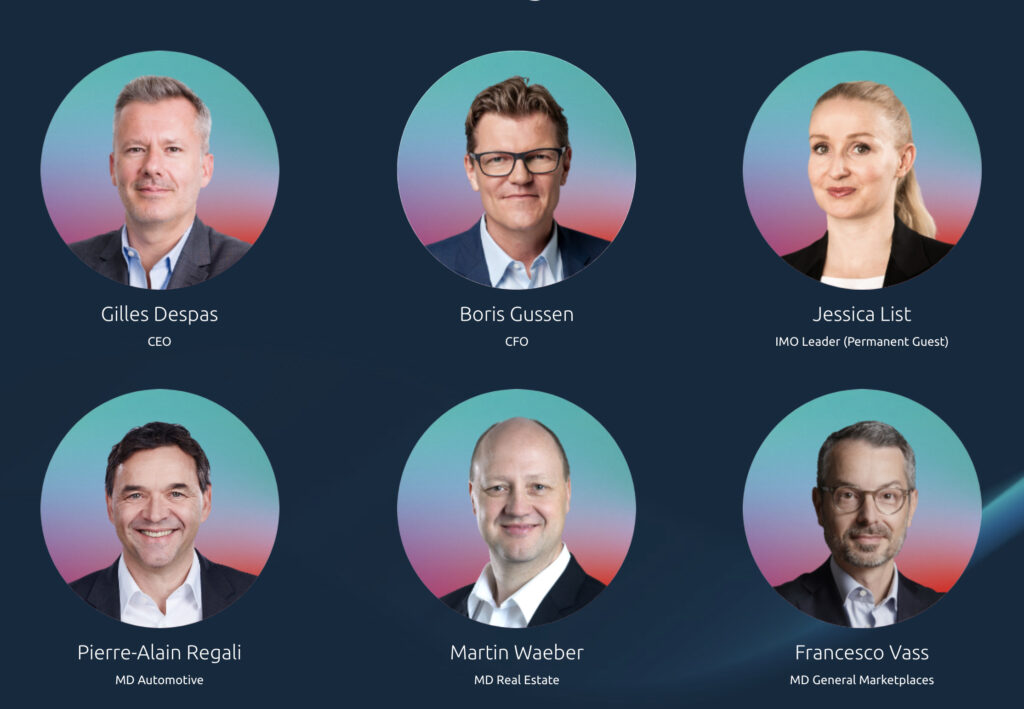Le 2 juin 2025, la fondation Right To Play Switzerland lance sur Ricardo une série d’enchères exceptionnelles au profit d’une bonne cause. Des objets de collection signés par des athlètes de renom, comme Iouri Podladtchikov et Martina Hingis, ainsi qu’une expérience de danse unique, seront mis aux enchères. L’intégralité des recettes sera reversée aux programmes de protection, d’éducation et d’épanouissement des enfants dans des zones de crise.
À l’occasion de la Journée internationale du jeu, la fondation Right To Play Switzerland lance une initiative solidaire particulière dans le cadre de l’action #RicardoForGood : du 2 au 11 juin 2025, les intéressés pourront enchérir sur Ricardo sur des objets et expériences uniques signés par diverses personnalités du sport – le tout au profit d’une bonne cause.
Enchères proposées :
- Un cours de salsa exclusif avec les ambassadeurs de Right To Play : Anouk Vergé-Dépré (beach-volley) et Alexander Martinez (triple saut)
- Deux tenues de tennis signées par Martina Hingis, l’une rouge, l’autre blanche
- Un t-shirt signé par le champion olympique de snowboard Iouri Podladtchikov
- Des maillots de football signés des équipes nationales de Finlande, Roumanie, Bosnie-Herzégovine, ainsi que du club néerlandais PSV Eindhoven
- Un casque de ski et des protections signés par Alexis Pinturault
Du Ghana à la piste de danse – l’histoire derrière le point fort de la vente
L’idée du cours de salsa est née de manière spontanée : lors d’une visite d’un programme Right To Play au Ghana en 2024, les deux ambassadeurs Anouk Vergé-Dépré (volleyball) et Alexander Martinez (triple saut) sont tombés en panne en chemin. Durant cette pause improvisée, ils ont découvert leur passion commune pour la salsa. Inspirés par ce moment, ils ont décidé de proposer un cours de salsa comme lot aux enchères et de reverser les recettes à Right To Play.
Enchérissez maintenant et soutenez les enfants du monde entier
Les enchères caritatives de la fondation Right To Play auront lieu du 2 au 11 juin 2025 sur Ricardo. Chaque enchère contribue à offrir espoir et avenir à des enfants vivant dans des zones de crise. Dans le cadre de l’initiative #RicardoForGood, Ricardo renonce à sa commission sur les ventes.
25 ans de Right To Play Switzerland
La fondation Right To Play Switzerland célèbre cette année son 25e anniversaire. Elle s’engage pour la protection, l’éducation et le développement des enfants dans les régions en crise. Elle soutient des programmes dans 14 pays, en mettant l’accent sur des méthodes d’apprentissage par le jeu. Ces programmes permettent aux enfants de faire face aux crises, de rester scolarisés, de défendre leurs droits et de rêver d’un avenir meilleur.
Contact presse – Right To Play Switzerland
Marisa Maeder – [email protected]
Tél. 079 229 88 77
À propos de Right To Play Switzerland
La fondation Right To Play protège, éduque et soutient les enfants pour qu’ils puissent surmonter les difficultés grâce au pouvoir du jeu. Depuis 25 ans, Right To Play est un acteur mondial de premier plan dans l’utilisation du jeu pour favoriser l’apprentissage et le bien-être des enfants – une force essentielle dans la vie de chaque enfant.
www.righttoplay.ch
À propos de Ricardo
Fondé fin 1999 à Baar (ZG), Ricardo est aujourd’hui l’un des marchés en ligne les plus populaires pour les articles de seconde main dans le e-commerce suisse. Ricardo fait partie de la SMG Swiss Marketplace Group AG.
www.ricardo.ch

